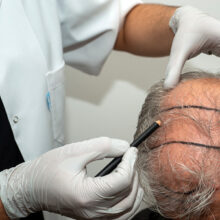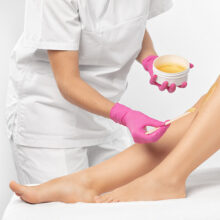The Science of Feeding your Skin: The Down-Low on Vitamins
- Published: Monday, June 24th 2013
- in Beauty
by Celeste Hilling, healthy skin care expert and CEO, Skin Authority
 Summer seems to go by so much faster each year. Everyone is rushing to pack as much fun and activity as possible in those fleeting summer days. In our hurry, we forget to wear sunscreen or stay hydrated. Perhaps we drink one too many many sodas (or margaritas!). Just as we need to be conscious of healthy nutrition for our bodies to look fit, our skin needs its own forms of nutrition to maintain its healthy glow. In this first post of a three-part series on the science of summer skin you’ll get the dish on feeding your skin with vitamins.
Summer seems to go by so much faster each year. Everyone is rushing to pack as much fun and activity as possible in those fleeting summer days. In our hurry, we forget to wear sunscreen or stay hydrated. Perhaps we drink one too many many sodas (or margaritas!). Just as we need to be conscious of healthy nutrition for our bodies to look fit, our skin needs its own forms of nutrition to maintain its healthy glow. In this first post of a three-part series on the science of summer skin you’ll get the dish on feeding your skin with vitamins.
The skin is an organ and responds to healthy nutrition as positively as other organs in our body. It is challenging for our skin to get those vital nutrients from food because less than one percent of the vitamins we ingest ever make their way to the skin. This is why applying those vitamins topically is so important. Think of it as a “nutrition sandwich:” you want to eat well to be healthy inside, and apply externally to restore the exterior strength and beauty.
Here are some important vitamins you want to have in your diet and your beauty bag:
Vitamin A is applied to the skin to reduce wrinkles, firm and tighten, and to protect against UV radiation. Sweet potatoes, carrots, green tea, broccoli, and pumpkin are excellent food sources of Vitamin A.
Vitamin C is a co-factor in the production of collagen for firmer, tighter skin. It also boosts UV absorption when worn under sunscreen. Vitamin C helps improve immune defense against cardiovascular disease, prenatal health problems, and eye disease. One pomegranate can supply 40% of an adult’s daily requirement of Vitamin C. Other foods rich in C include oranges, broccoli, cantaloupe, pumpkin, and tomatoes.
Vitamin D is the only vitamin which the body makes (all others come from food). It is made in the skin and gets converted to a hormone. When Vitamin D hormone levels are balanced, a lot of skin conditions will improve such as rosacea, eczema, psoriasis, and heavy wrinkling. Vitamin D deficiency may be linked to cancer, cardiovascular disease, autoimmune disease, bone loss, depression, and many other serious health conditions. Fatty fish such as salmon, tuna, and mackerel are among the best sources of Vitamin D. Liver, mushrooms, and egg yolks are great sources too. USDA daily requirement is 600 IU per day.
Omega Fatty Acids, including Omegas 3 and 6, improve the skin layer that holds moisture in and keeps irritation out. Fatty Acids may also improve rosacea and dermatitis. They are found in fish, including salmon, tilapia, and cod, as well as plant-based sources such as flax seed, walnuts, pecans, and hazelnuts. It’s also smart to cook with Safflower or Sunflower Oil, they are good sources of Omega 6, which helps prevent dry skin and inflammation.
About the author: With two decades in the beauty and skin care industries, Celeste Hilling is the Founder, CEO and Product Formulator for Skin Authority. Skin Authority is respected for developing pure and powerful products without the use of parabens, added fragrance, dyes or animal testing.
More on www.skinauthority.com, Facebook at Skin Authority, Twitter @Skin_Authority and @MissSkin.




